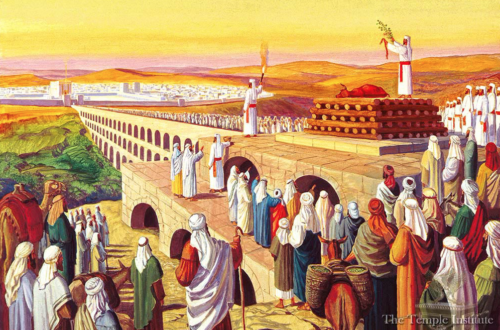
Thanksgiving 2017
It’s Thanksgiving. But let’s suppose you can’t be very thankful this year.
Let’s suppose you have spent more than five years pouring yourself into a group of people who are not thankful for you at all. You have given them everything you have. You have not charged them anything for your sacrifice. While you have not complained to them or asserted yourself over them, you have been faithful to them and truthful with them. You have given them all you can possibly offer them, and they have freely taken what they wanted and rejected the rest. No one has given as much to them as you have, and no one has been more ungrateful than they have been. You have supported them, encouraged them, given to them, corrected them, confronted them, endured them—and all you get back from them is petty criticism that puts you down and misrepresents you. And it’s happened once again. This time, you fear, to a precious friend of yours whom you sent to them with a note of correction and a promise that you will return to see them.
Up until now it has been impossible for you to go see them, although you promised you would. Sometimes in life things happen that we cannot control and we are not able to keep well-intended promises that reasonable people should understand. They should understand your situation and recognize that no matter how well intentioned you were, you could not come when you wanted to. These, however, are not reasonable people, but self-centered people who are interested only in their own outlook, so they attacked you and accused you of being a person who gives his word and breaks promises.
You sent a letter to them with a promise that you could come to them as soon as you could and you made arrangements to meet your friend on your way to see these people once again with the hope that you would receive an encouraging word concerning their response to your message. Instead, when you got to the place where you were supposed to meet your friend, he was not there. You found one of the most responsive opportunities you ever had in your life. Everywhere you went in this significant city there were opportunities to see people come to the Lord. It was just unbelievable, like a dream come true, but the nightmare you were facing darkened your mind and dominated your heart. You realized that there were others in the city who could take your place, but there was no one who could replace you in the hearts of these ungrateful and ungracious complainers. You finally decided you could not stay, but, even though you were leaving one of the greatest opportunities you ever experienced, you had to go, no matter what you were giving up.
Let me ask you a couple of questions.
Have you ever faced such thankless people? How could you possibly be thankful for them?
If you’re a pastor or business leader or educator or public servant or parent, you face this virtually every day. You have no choice but to face such thankless people. And you have to be thankful for them because we all are the very same kind of thankless people, aren’t we?
This is exactly the kind of people that the apostle Paul faced in Corinth, exactly the kind of opportunity he had to leave (II Cor 2:1-14), and exactly the kind of issue he faced when he finally found Titus whom he has sent to the Corinthians and who brought back a very mixed report to Paul (II Cor. 7:5-9). It was through that experience that Paul realized that God works among thankless people.
What he discovered was that God was triumphant, even among thankless people (II Cor. 2:14-16). It is often not the kind of triumph we hope for because it results in His and our rejection, even though at times it results in an amazing response to His work and His grace. As this was true for Paul, it is true for us. Even though we feel rejection, even violent rejection, we often find victorious response as God demonstrates His faithfulness and power through our weakness by changing those who have turned on us. This is exactly what Paul discovered when he finally found his friend, Titus, who told him of God’s triumph in one of the most defeated cities in the Roman Empire, Corinth.
Because of the defeat Paul experienced through his work in Corinth , he raised the obvious question we all face: “Who is adequate for these things (2:16)? Certainly I’m not. Yet he responds immediately by saying he was not going to minimize his message or melt down his motives. His message is God’s life-changing truth and his motives arise out of gratitude to the God who has transformed his life and delivered him from the destructive methods of his past. He knew he served in the sight of God and spoke in commitment to the resurrected Christ who transformed his senseless life of death into the eternal purpose of resurrection. Paul knew he could never be anything but thankful for the One who died for him and lives through him. He is the one who gave him triumph and who gives us triumph.
There are times when Thanksgiving is a very difficult season for all of us, but we cannot be resentful or full of self-pity and unthankful for the One who has given us the very love and life and opportunities that we have. We can only say with Paul even when we might be going through an unthankful Thanksgiving season, “ . . . thanks be unto God who always leads us in triumph in Christ.” Even when His triumph doesn’t make sense at times, it’s the greatest triumph there is.
MORE RESOURCES AT:




